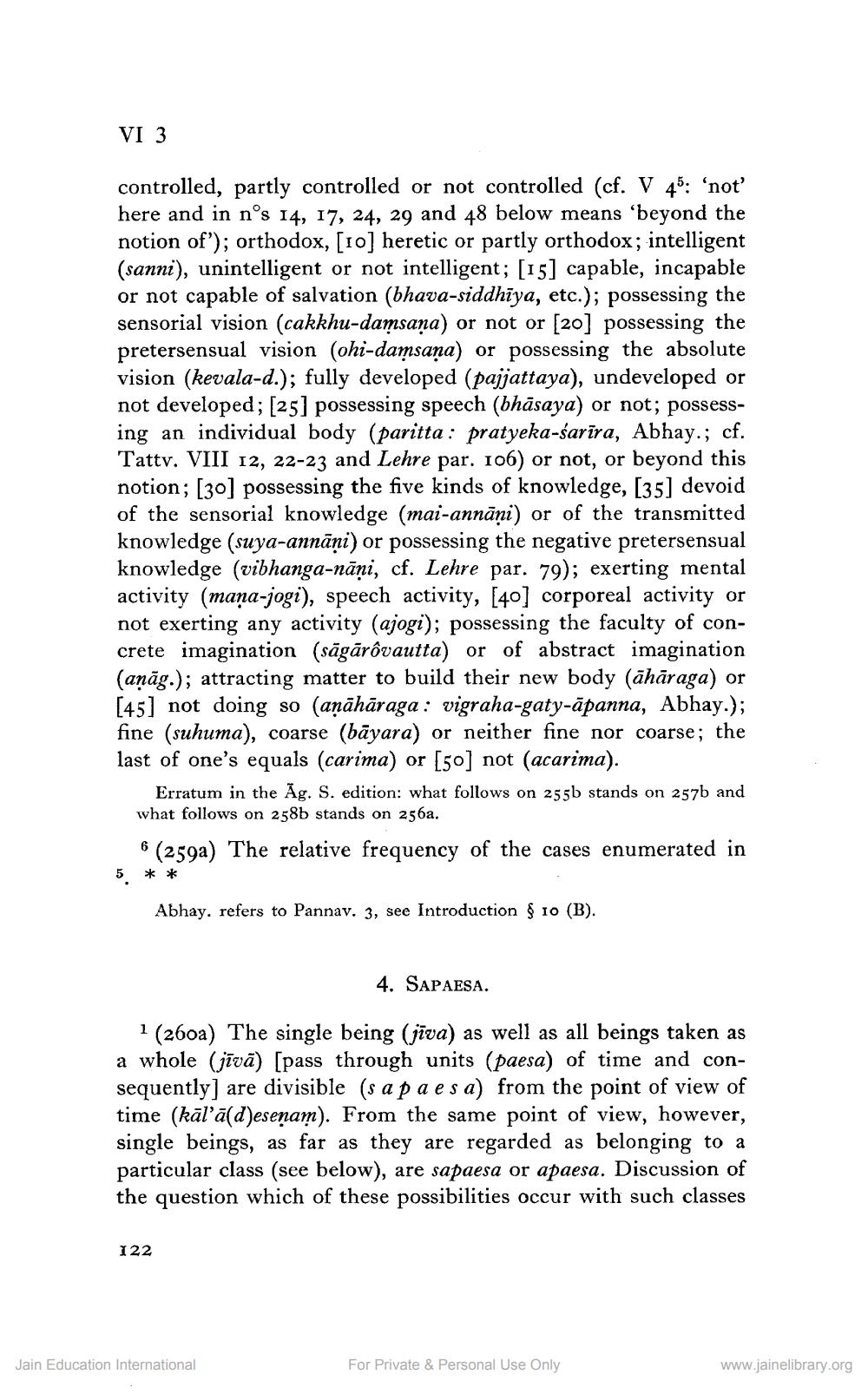________________
VI 3
controlled, partly controlled or not controlled (cf. V 45: 'not' here and in nos 14, 17, 24, 29 and 48 below means 'beyond the notion of'); orthodox, [10] heretic or partly orthodox; intelligent (sanni), unintelligent or not intelligent; [15] capable, incapable or not capable of salvation (bhava-siddhīya, etc.); possessing the sensorial vision (cakkhu-damsana) or not or [20] possessing the pretersensual vision (ohi-damsana) or possessing the absolute vision (kevala-d.); fully developed (pajjattaya), undeveloped or not developed; [25] possessing speech (bhāsaya) or not; possessing an individual body (paritta: pratyeka-sarīra, Abhay.; cf. Tattv. VIII 12, 22-23 and Lehre par. 106) or not, or beyond this notion; [30] possessing the five kinds of knowledge, [35] devoid of the sensorial knowledge (mai-annāņi) or of the transmitted knowledge (suya-annāņi) or possessing the negative pretersensual knowledge (vibhanga-nāņi, cf. Lehre par. 79); exerting mental activity (mana-jogi), speech activity, [40] corporeal activity or not exerting any activity (ajogi); possessing the faculty of concrete imagination (sāgārôvautta) or of abstract imagination (anag.); attracting matter to build their new body (āhāraga) or [45] not doing so (aṇāhāraga: vigraha-gaty-apanna, Abhay.); fine (suhuma), coarse (bāyara) or neither fine nor coarse; the last of one's equals (carima) or [50] not (acarima).
Erratum in the Ag. S. edition: what follows on 255b stands on 257b and what follows on 258b stands on 256a.
6 (259a) The relative frequency of the cases enumerated in
5
**
Abhay. refers to Pannav. 3, see Introduction § 10 (B).
122
1 (260a) The single being (jiva) as well as all beings taken as a whole (jīvā) [pass through units (paesa) of time and consequently] are divisible (s apa es a) from the point of view of time (kālā(d)esenam). From the same point of view, however, single beings, as far as they are regarded as belonging to a particular class (see below), are sapaesa or apaesa. Discussion of the question which of these possibilities occur with such classes
4. SAPAESA.
Jain Education International
For Private & Personal Use Only
www.jainelibrary.org




